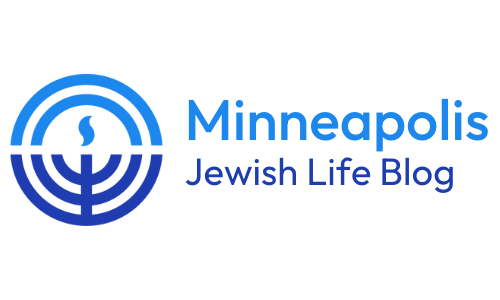Honeymoon Israel: 1 year later
Josh Rosard pulls up a spreadsheet on his phone. Its title is “Shabbat Scramble” and the rows and columns make up a six-month plan of attack to help 40 busy people meet up regularly for Shabbat dinner.
Maintaining friendships as an adult is difficult. But for the 20 Twin Cities couples who traveled to Israel with Honeymoon Israel just over a year ago, the extra effort is worth it.
Mickayla and Josh Rosard admit that although Israel was incredible, they wondered whether the friendships they were forming were too good to be true.
“In the back of our minds, we had this caveat,” says Mickayla. “’After we get home, everyone will go back to their real life. We’ll see how this actually plays out.’”
“A week or two after we got back, a group hosted a get together that had a huge turnout,” adds Josh. That’s when people realized, hey...we actually enjoy each other when we’re not in Israel.”
“It’s been really interesting, a year later, to be like ‘oh wow... We see the group all the time,’” says Mickayla.
At the end of 2019, nearly all 20 couples traveled to Herzl Camp for a retreat (with the help of YALA Twin Cities)—a chance to connect again without real life getting in the way, just as they had done in Israel. The group began a long-term conversation about whether they wanted more out of their connection. The conversation is ongoing, but one thing was clear: these were not one-time, artificial friendships.
“Everyone [on our trip] was clearly craving something,” says Mickayla. “We’re all in the Twin Cities, part of the “fringe” Jewish community—there was just enough commonality. And our paths might not have crossed without the trip. The trip was the catalyst, but the real magic has been what we’ve created of it since.”
Honeymoon Israel’s founders hoped this would be the case. “When we founded Honeymoon Israel...we were explicit that this program was meant to catalyze the development of community,” they wrote in EJewishphilanthropy. “Our goal is to co-construct an ecosystem for young Jewish families that is as vibrant as it is diverse.”
Josh grew up Jewish; Mickayla did not. “It was a small datapoint of who we were,” says Mickayla, “but it wasn’t a big piece. Our general principles of being open and accepting are very similar, and discovering where Christianity and Judaism’s viewpoints overlap and diverge was a fun exploration for us.”
Before HMI, Mickayla says, the burden was on Josh to advocate for keeping Jewish traditions in their lives. But now, she doesn’t think twice about hosting Shabbat or putting up a mezuzah. “I feel empowered.”
“Being Jewish looks very different in 2020 than it did 30 or 40 years ago,” Mickayla says. The HMI community understands and embraces that, with no judgment. “It’s been a resource for sharing ideas on how to incorporate Judaism to fit into our unique family.”
“And it provides social proof,” says Josh—proof that customs and traditions they may have found old-fashioned, or felt they “weren’t Jewish enough” for can work for a modern Jewish couple. “We didn’t have that proof before this trip.”
“There’s a trend of more and more interfaith couples, and maybe the loss of Jewish traditions,” Josh acknowledges. Maintaining their HMI group, he says, “keeps the bug in people’s ears—especially as they’re starting to have children—to incorporate Judaism in their family.”
More than friendships, this group formed a community that’s hard to put into words. And Mickayla and Josh are positive it’s changed how they incorporate Judaism into their family.
Honeymoon Israel provides trips to Israel for couples with at least one Jewish partner. Each trip includes 20 diverse couples from the same city – couples with one Jewish partner, couples where both partners were born Jewish and couples where one partner is converted/Jew-by-choice. Honeymoon Israel MSP is supported by the Minneapolis Jewish Federation and the St. Paul Jewish Federation.


